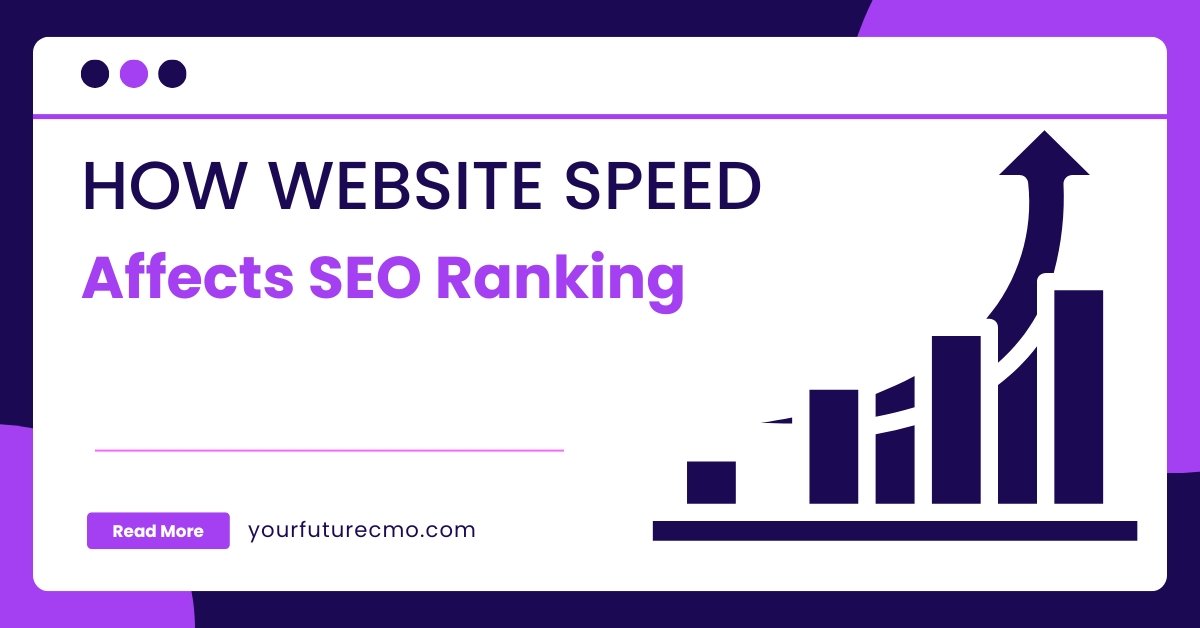- March 12, 2025
- by usmanali09132@gmail.com
- Uncategorized
- 0 Comments
Page Speed and User Experience
Website speed is one of the key ranking factors in technical SEO. Google has demonstrated how fast-loading sites provide users with an enhanced user experience, directly impacting SERP rankings. Modern users expect pages to load fast; slow pages could entice visitors away before even giving your content time to sink in!
Slow websites tend to irritate visitors and increase bounce rates, sending signals to search engines that it may not offer users what they desire. Google uses Core Web Vitals in its ranking algorithm as a barometer of website loading speed performance, interactivity, and visual stability—faster load times are preferred by search results as they create more fulfilling user experiences.
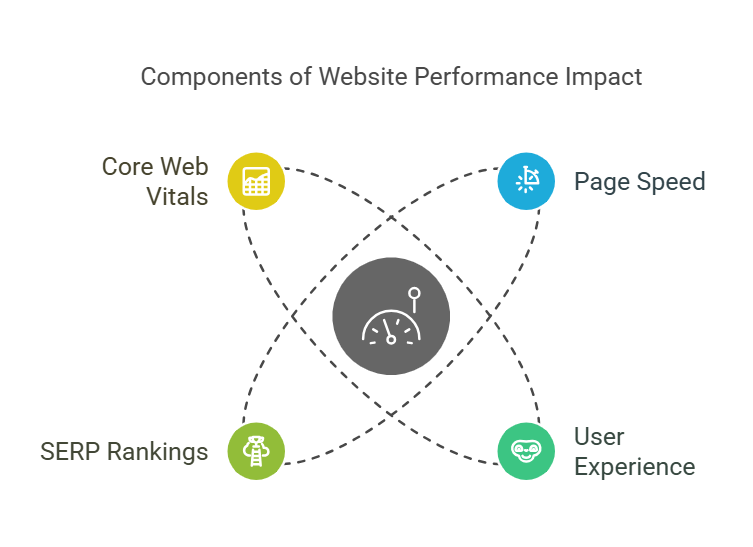
Best Practices for Improving Page Speed
Optimize Images
Large image files can slow down your website, so use image compression tools to reduce their size without compromising image quality.
Minify Codes
Minimizing CSS, JavaScript, and HTML files will speed up page load time significantly by cutting their size down drastically and speeding page delivery time.
Enable Caching
Caching stores copies of files stored on your website to reduce load times on future visits.
Utilize a Content Delivery Network (CDN)
Deliver content faster through servers located nearer to users by creating localized server distribution, improving load times.
Use Speed Testing Tools
Utilize Google PageSpeed Insights, GTmetrix, and Pingdom as tools for speed testing your page load times.
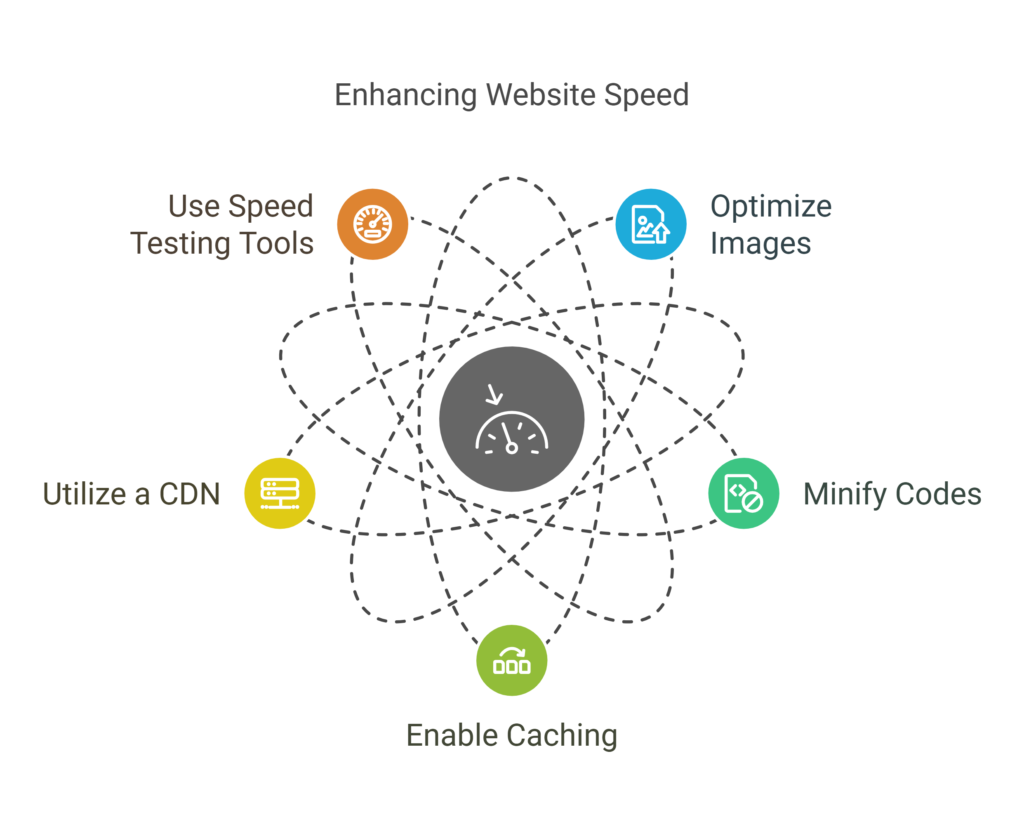
Best Practices for Mobile SEO Optimization
Why Mobile SEO Matters
With mobile-first indexing, Google now ranks and indexes websites based on their mobile version—meaning mobile-friendliness of a site directly impacts its SEO performance. In fact, with an increasing reliance on mobile users worldwide, Google prioritizes mobile optimization as one of its ranking criteria.
A responsive website doesn’t guarantee positive user experiences on mobile devices. In addition to being fast, it must be nimble and free of mobile-specific complexities that impede navigation or hamper a positive user journey. Google prioritizes mobile-optimized sites when ranking search results, so it’s key for websites to perform well across devices.
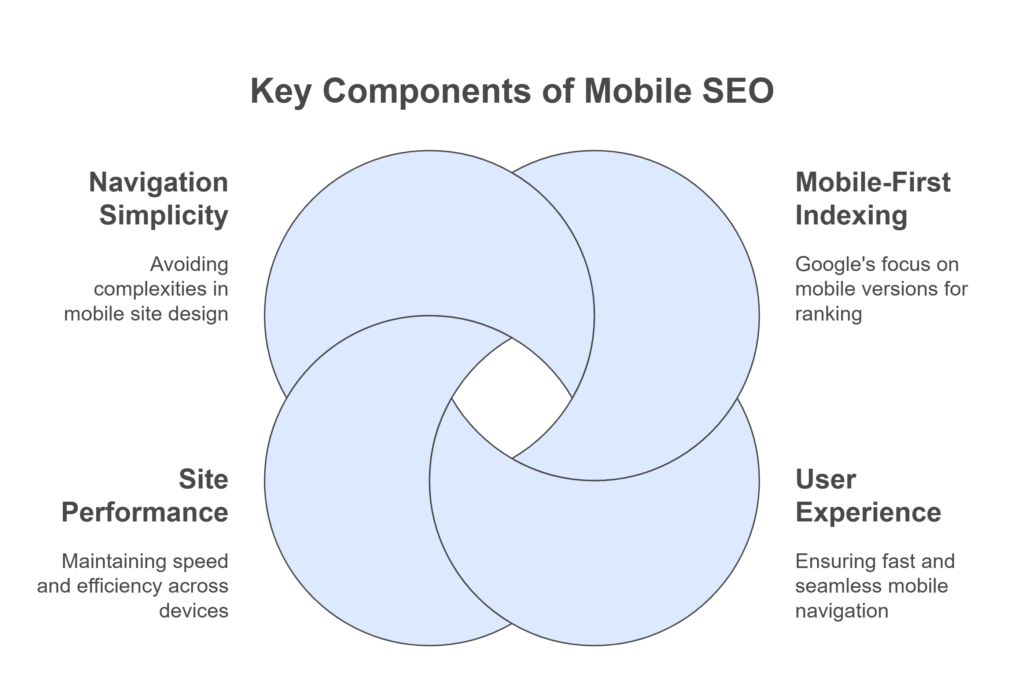
Checklist for Optimizing a Website on Mobile Devices
Responsive Design
Make sure your website design adapts to various screen sizes from smartphones to tablets.
Touch-Friendly Navigation
Buttons and menus must be easy for small screen users to tap and navigate easily.
Create Mobile-Friendly Content
Text should be easy to read without zooming, while multimedia should automatically adjust for mobile screens.
Test Mobile Usability
Regularly utilize Google’s Mobile-Friendly Test in order to identify and address potential mobile issues on your site.
Mobile SEO Tools
- Google Mobile-Friendly Test
- Search Console Mobile Usability Report
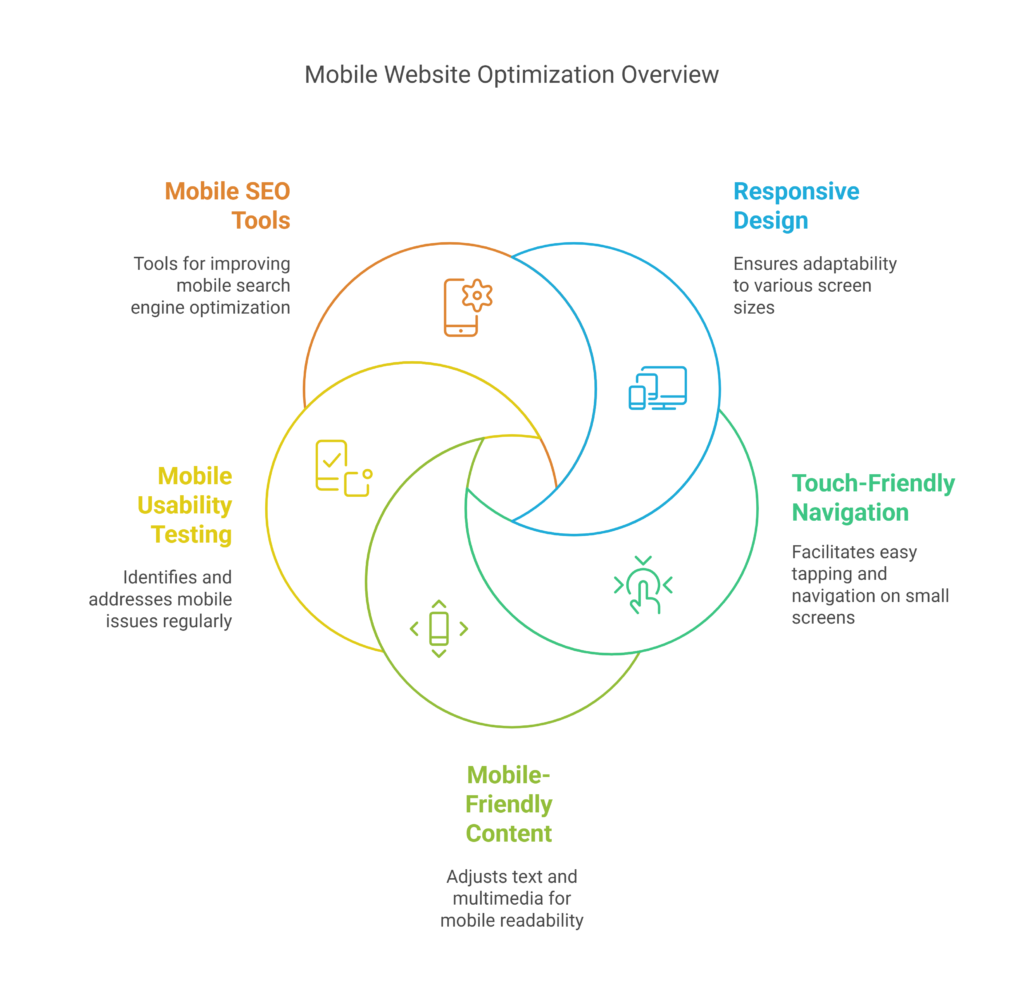
Why Structured Data Matters for SEO
Understanding Structured Data and Schema Markup
Structured data helps search engines interpret and display your site content more accurately on search result pages. By adding contextual details using schema markup, search engines can index your content more efficiently.
Schema markup is a form of structured data that adds specific details about your content—reviews, ratings, event dates, and product prices can all benefit from additional details provided through Schema markup. This often leads to rich snippets that receive additional clicks in search engine listings.
How Structured Data Improves SEO
Increased Visibility in Search Results
Schema markup can make your pages stand out by adding rich snippets such as star ratings, images, or event details, helping to boost their search visibility.
Better Search Engine Indexing
Schema helps search engines better comprehend your content, leading to improved crawling and indexing by search engines.
Higher Chances of Featured Snippets
Proper structured data implementation can increase the chances of being featured in snippets, thereby expanding visibility further.
Best Practices for Structured Data Implementation
Use Schema Markup Correctly
Make sure the appropriate schema types (articles, products, reviews) are used when marking up content.
Validate Your Markup
Utilize Google’s Structured Data Testing Tool to check if your schema markup implementation has been correctly done.
Prioritize Key Content Types
Give priority to marking up content that directly relates to your business, such as product listings, reviews, and articles.
Structured Data Tools
- Google Structured Data Testing Tool
- Schema Markup Generator
Not Just Page Speed or Mobile Optimization
In addition to page speed, mobile optimization, and structured data, other aspects of technical SEO must also be considered to ensure optimal website performance and SEO success.
Additional Technical SEO Best Practices
HTTPS Security
Ensure your website is secured using HTTPS to safeguard user data while also considering Google’s ranking preferences for secure sites.
Crawling and Indexing
Take control of how search engines crawl your site with tools like Google Search Console to track how crawlers index your pages. Fix any crawling issues to ensure accurate indexing.
XML Sitemap
Helps search engines understand your website structure more efficiently and find pages more quickly.
Robots.txt File
Use robots.txt files to control which pages search engines should and shouldn’t crawl.
Canonical Tags
Implement canonical tags to address duplicate content issues that could harm your rankings while improving search engines’ crawl capabilities.
Internal Linking Structures
An effective internal linking structure helps search engines crawl your site easily while giving users quick access to relevant content.
SEO Audit
Conduct regular SEO audits to detect and resolve problems such as broken links, missing meta tags, or poor site structure.
301 Redirects
When moving pages, use 301 redirects to preserve link equity and prevent broken links.
Conclusion
Technical SEO is an indispensable element of website performance. By optimizing key factors like page speed, mobile usability, and structured data, you not only improve user experience but also enhance search engine rankings. Regularly auditing your site for technical SEO issues ensures you maintain a competitive edge in search results, bringing more organic traffic directly to your website.


